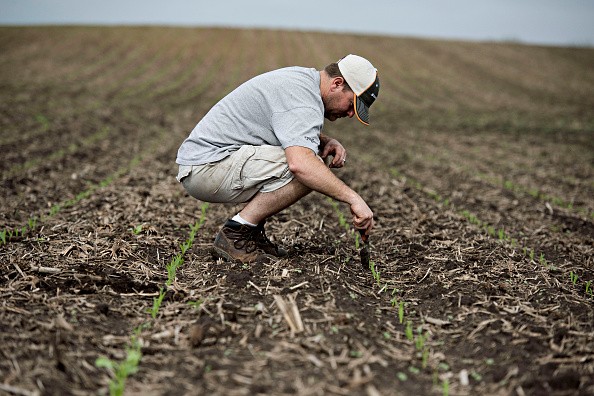Swiss seed-maker Syngenta AG has denied claims by U.S. farmers that it was responsible for the decline in corn prices in 2013 that resulted in their losses.
On Monday, April 24, the Syngenta trials started in a state court in Minneapolis, Bloomberg reported.
American farmers alleged that Syngenta had quickly passed to them its genetically modified corn, Viptera, and another GMO seed to be sold without first getting an import approval from China.
But the U.S. corn shipments were rejected, which resulted in the decline of corn prices for five years, while China bought its supplies from other countries, according to the farmers.
Syngenta, however, denied any wrongdoing, the report said.
While the trials are likely to continue, China National Chemical Corp will push through with the planned $43 billion acquisition of Syngenta. Although regulators from Europe, China and the U.S. have approved the deal, it is still awaiting approval of Indian authorities.
According to the report, if the farmers succeed over Syngenta, the firm would still go back to the Chinese government which rejected the GMO corn, with the Asian giant having acquired the company.
Syngenta started selling Viptera in the U.S. in 2011, but it took three years to gain the approval of Chinese regulators for the genetically modified seeds.
Syngenta, however, denied that farmers' loss was caused by China's rejection of the seeds. The company said that corn prices declined due to the big corn harvest in 2013.
"There had been a 30 percent drop because of a record harvest well before the Chinese decided not to take any more corn," Syngenta lawyer Michael Jones said in an interview.
Jones added that U.S. regulators gave the go-signal to sell the GMO corn and farmers are not required to wait for China's approval to sell it.
Meanwhile, lawyers for the farmers said that Syngenta provided the farmers with misleading statements regarding China's approval of the GMO seeds.
"To avoid losing market share, Syngenta took a risk on the backs of American farmers," Mikal Watts, one of the plaintiffs' lawyers, said. "The trade disruption Syngenta caused resulted in $13 billion in damages to American farmers."
Other cases against Syngenta
The first trial against Syngenta involved the case of Daniel Mensik, who owns a 300-acre farm in Nebraska. Mensik claimed he lost $125,000 in sales because of Syngenta's fault. He also asked for punitive damages against the company.
Syngenta is also set to face in June a class action lawsuit filed by Kansas farmers, who are seeking $200 million as well as punitive damages.
In August, it is also set to face another case, which is filed by Minnesota farmers asking for $600 million in damages.
In another separate lawsuit, Syngenta was also charged by grain exporters Archer-Daniels-Midland Co. and Cargill Inc. of tainting U.S. corn which resulted in China's rejection. The case, which is pending in a state court in Louisiana, will go to trial next year.
The farmers said that an estimated 1.4 million metric tons of U.S. corn were blocked by China. They said that the demand for U.S. corn weakened, which caused the drop in corn futures stocks.
The farmers added that although China approved the GMO corn a year later, corn supplies from other countries, such as Ukraine, continue to displace U.S. crops.
Since 2013 when China banned U.S. shipments, the average price of U.S. cash corn has fallen 21 percent, while on the Chicago Board of Trade, futures dropped 16 percent, data compiled by Bloomberg show.



























